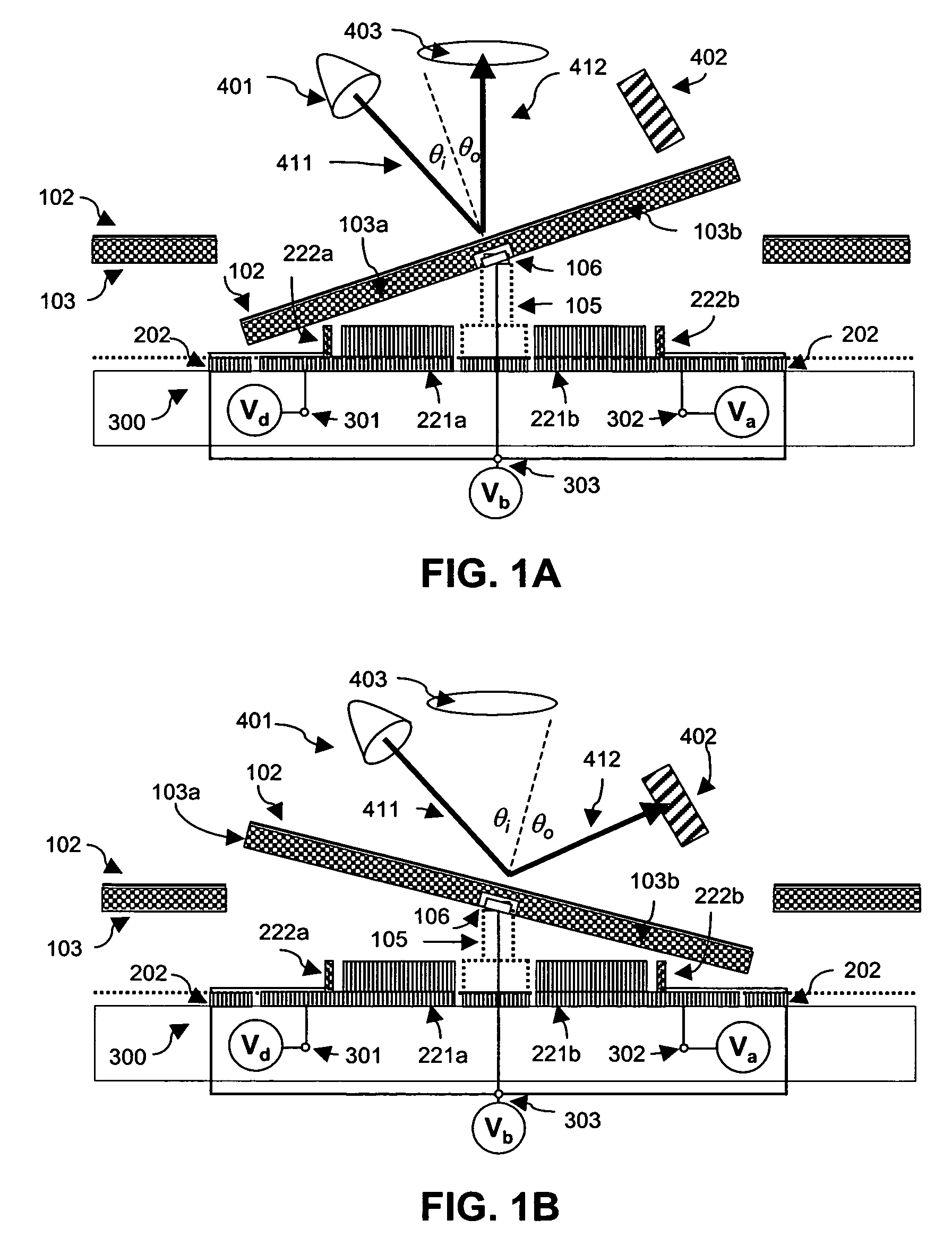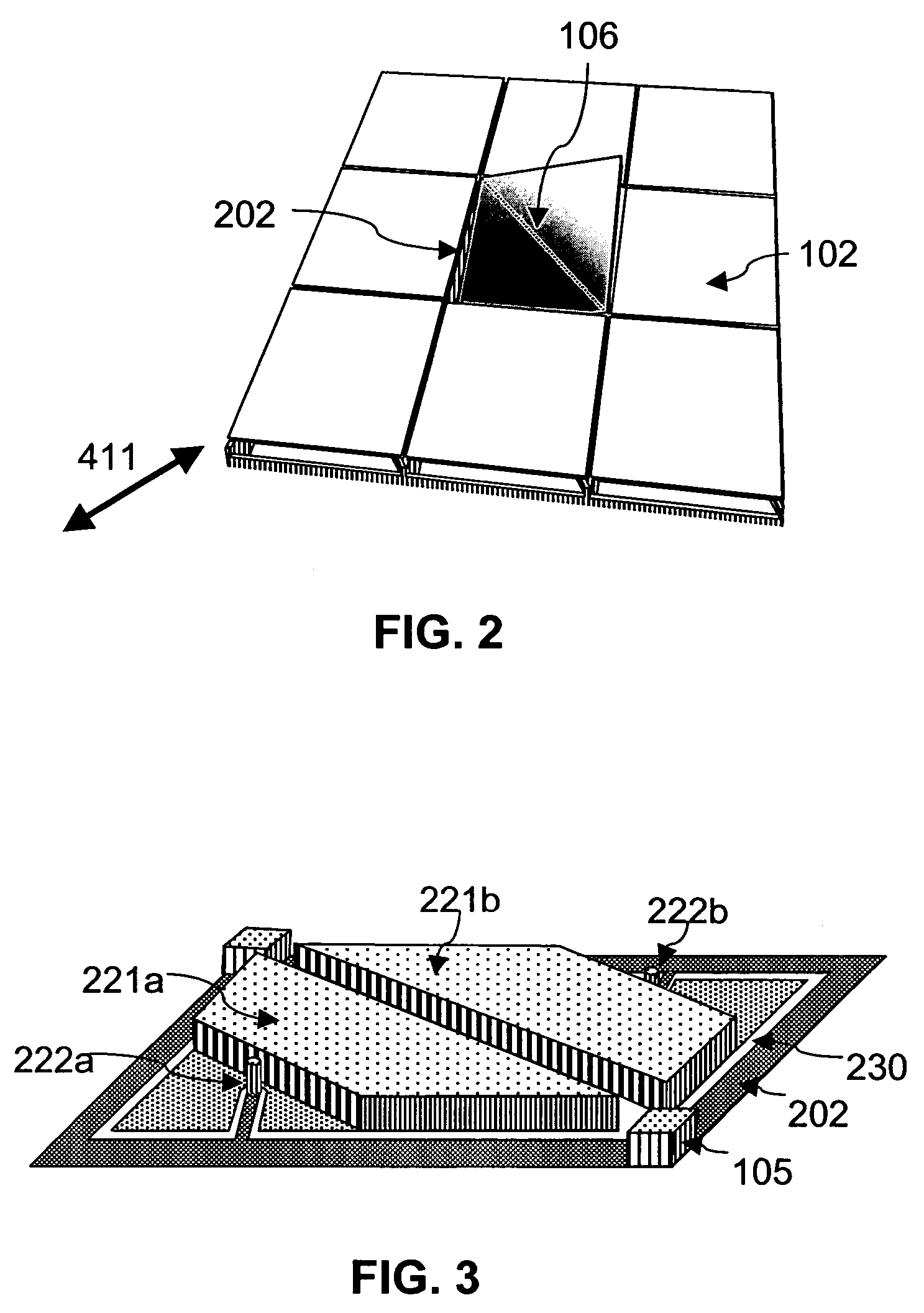High contrast spatial light modulator
a spatial light modulator and high contrast technology, applied in the field of micro mirror arrays, can solve the problems of low brightness, low contrast ratio of images projected, low brightness, etc., and achieve high active reflection area fill-ratio, high electrostatic efficiency, and high contrast
- Summary
- Abstract
- Description
- Claims
- Application Information
AI Technical Summary
Benefits of technology
Problems solved by technology
Method used
Image
Examples
Embodiment Construction
[0037]A high contrast spatial light modulator for display and printing is fabricated by coupling a high active reflection area fill-ratio and non-diffractive micro mirror array with a high electrostatic efficiency and low surface adhesion control substrate.
[0038]A cross section view of a part of the spatial light modulator according to one embodiment of the present invention is shown in FIG. 1a, as the directional light 411 of illumination 401 at an angle of incidence θi is deflected 412 at an angle of θo toward normal direction of a micro mirror array. In a digital operation mode, this configuration is commonly called the “on” position. FIG. 1b shows a cross section view of the same part of the spatial light modulator while the mirror plate is rotated toward another electrode under the other side of the hinge 106. The same directional light 411 is deflected to 412 a much larger angles θi and θo predetermined by the dimensions of mirror plate 102 and the air gap spacing between its ...
PUM
 Login to View More
Login to View More Abstract
Description
Claims
Application Information
 Login to View More
Login to View More - R&D
- Intellectual Property
- Life Sciences
- Materials
- Tech Scout
- Unparalleled Data Quality
- Higher Quality Content
- 60% Fewer Hallucinations
Browse by: Latest US Patents, China's latest patents, Technical Efficacy Thesaurus, Application Domain, Technology Topic, Popular Technical Reports.
© 2025 PatSnap. All rights reserved.Legal|Privacy policy|Modern Slavery Act Transparency Statement|Sitemap|About US| Contact US: help@patsnap.com



